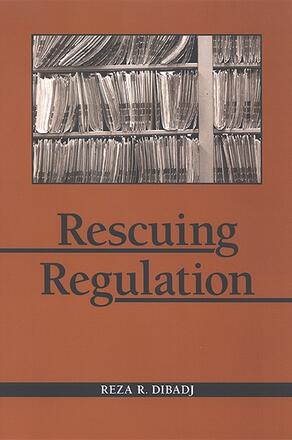
Rescuing Regulation
Alternative formats available from:
Fashions a new way of defending the importance of economic regulation.
Description
The traditional debate on governmental regulation has run its course, with economically minded analysts pointing to regulation's inefficiency while those focused on justice purposefully avoid the economic paradigm to defend regulation's role in protecting consumers, workers, and society's disadvantaged. In Rescuing Regulation, Reza R. Dibadj challenges both camps. He squarely addresses the shortcomings of the conventional economic critique that portrays regulation as a waste, and also confronts those focused on justice to marshal economic arguments for public intervention against social inequities and abusive market behavior. Providing novel answers to the questions of why and how to regulate, Dibadj contends that the law and economics paradigm must not remain an apologist for laissez-faire public policy. He also demonstrates how incorporating the latest economics and revamping institutions can help improve our public agencies. Rescuing Regulation not only suggests ways to develop public institutions reflective of a democracy, but also broadly outlines how social science can inform normative legal discourse.
Reza R. Dibadj is Associate Professor of Law at the University of San Francisco.